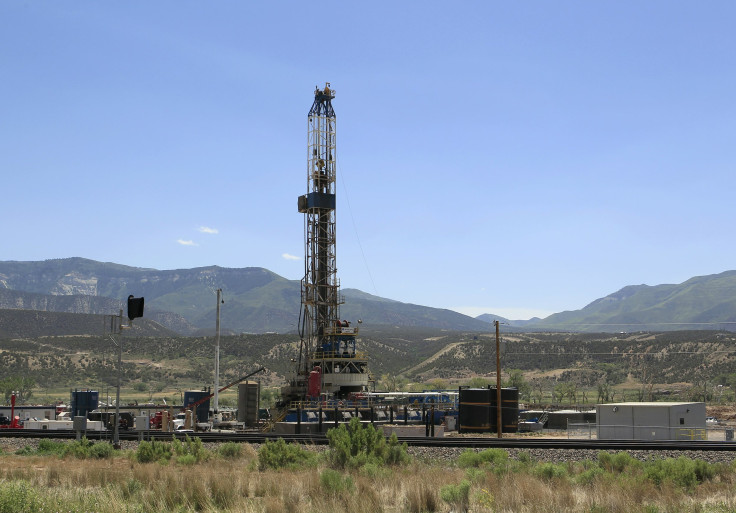Texas Town Moves One Step Closer To Fracking Ban

Even Texans are hotly debating fracking.
Fed up with what it claimed were serious health-related issues among the community’s children, the Denton Drilling Awareness Group, a grass-roots group in a town of the same name, has managed to get the state’s first referendum on whether to ban further permitting of the controversial oil-drilling practice within city limits.
“Parents there had to keep their kids indoors for weeks because the toxic fumes were so overwhelming,” according to Adam Briggle, vice president of the community group that organized a petition to push a vote on the ban. “Children got nosebleeds, breathing problems and headaches. … we can either have fracking or we can have a safe and healthy city.”
After listening to hours of community testimony late into the evening, the city council of the North Texas college town voted early Wednesday to allow a public vote in November to determine whether Denton will become the first city in Texas to ban fracking.
"What you’re seeing is in Denton, folks who otherwise are completely supportive of the oil and gas industry -- all the sudden when it’s happening to their neighbor are turning around," Kevin Roden, the councilman who called for the ban and who has lived in Denton for 24 years, said. "I think there’s a reasonable way to develop these minerals. I don’t think the majority of the people who signed the petition are anti-fossil fuel."
The council could have immediately adopted the ban, but instead voted 5-2 against that option. According to the Denton Record-Chronicle, of the 500 people who attended the meeting, 155 filled out comment cards favoring the ban and 46 filled out cards opposing the ban.
Brad Davis, who lives in a ranch house in northwest Denton, where most of the fracking occurs, says he can see and hear the drilling from his back porch, “kind of a soft hum” and “bright lights at night.”
“It’s not nearly as loud as the train,” he said. “If you didn’t know what it was you might not notice.”
A ban in the community, which ranges from rural pastures to multistory apartment complexes and sits atop the natural gas-rich Barnett Shale, will be closely watched. At least 423 local governments nationwide have passed measures that ban or restrict fracking, the vast majority in the northeast, but only four in Texas, according to Food and Water Watch.
However, even if Denton residents vote to ban fracking, state authorities would likely claim that the mineral rights on properties cannot be taken away from the landowners.
Other measures to restrict fracking in Texas fall short of the proposed Denton limits. A measure passed in June 2010 in Flower Mound, Texas, requires oil and gas companies fracking in the city to disclose the chemicals it mixes with water and sand pumped underground. Bartonville, a wealthy community outside Dallas and where ExxonMobil (NYSE:XOM) CEO Rex Tillerson has lived for years, tried to deny a fracking permit but was forced by the state to issue it in 2012, the Wall Street Journal reported.
A series of amendments Denton passed in 2013 prohibits drilling from closer than 1,200 feet from homes, parks, schools and anywhere else people, especially children, may gather. But state laws allow companies in the city to operate wells based on the rules that existed at the time they first received permits for them, some as early as 2002. What's more, a rising population encouraged some residential developments to expand their fences up to old wells that were dormant until new drilling technologies like fracking and changing natural gas prices made them profitable again.
"That’s what’s been highly problematic," Roden said. "Texas law isn’t helping out, so citizens are taking measures in their own hands."
After New York’s Supreme Court ruling in late June that upheld dozens of city-imposed bans on fracking, Andrew Weissman, senior energy advisor for Haynes and Boone LLP, said the measure is likely to encourage similar efforts in other states but not likely to be successful in states like Texas where significant oil and gas development is occurring.
That is evident from this map of the nationwide anti-fracking movement by Food and Water Watch, which shows fracking measures heavily concentrated in the northern part of the Marcellus Shale in the northeast but not in most of the country with large shale deposits and booming oil industries like Texas and North Dakota.
"The drilling simply goes elsewhere," Tom Gellrich, Philadelphia-based oil and gas analyst at Topline Analytics, added.
© Copyright IBTimes 2024. All rights reserved.






















